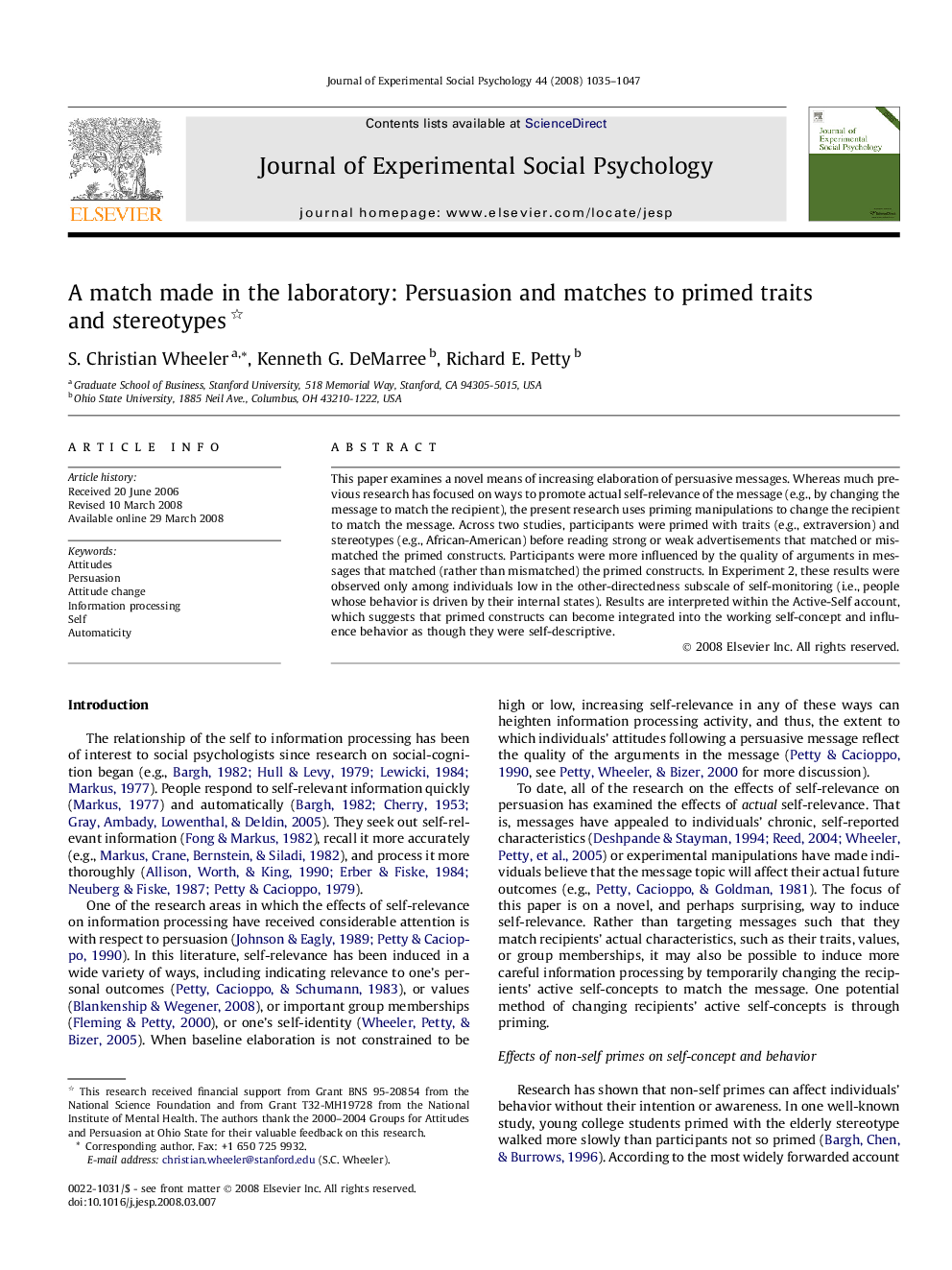| Article ID | Journal | Published Year | Pages | File Type |
|---|---|---|---|---|
| 10468617 | Journal of Experimental Social Psychology | 2008 | 13 Pages |
Abstract
This paper examines a novel means of increasing elaboration of persuasive messages. Whereas much previous research has focused on ways to promote actual self-relevance of the message (e.g., by changing the message to match the recipient), the present research uses priming manipulations to change the recipient to match the message. Across two studies, participants were primed with traits (e.g., extraversion) and stereotypes (e.g., African-American) before reading strong or weak advertisements that matched or mismatched the primed constructs. Participants were more influenced by the quality of arguments in messages that matched (rather than mismatched) the primed constructs. In Experiment 2, these results were observed only among individuals low in the other-directedness subscale of self-monitoring (i.e., people whose behavior is driven by their internal states). Results are interpreted within the Active-Self account, which suggests that primed constructs can become integrated into the working self-concept and influence behavior as though they were self-descriptive.
Related Topics
Life Sciences
Neuroscience
Behavioral Neuroscience
Authors
S. Christian Wheeler, Kenneth G. DeMarree, Richard E. Petty,
